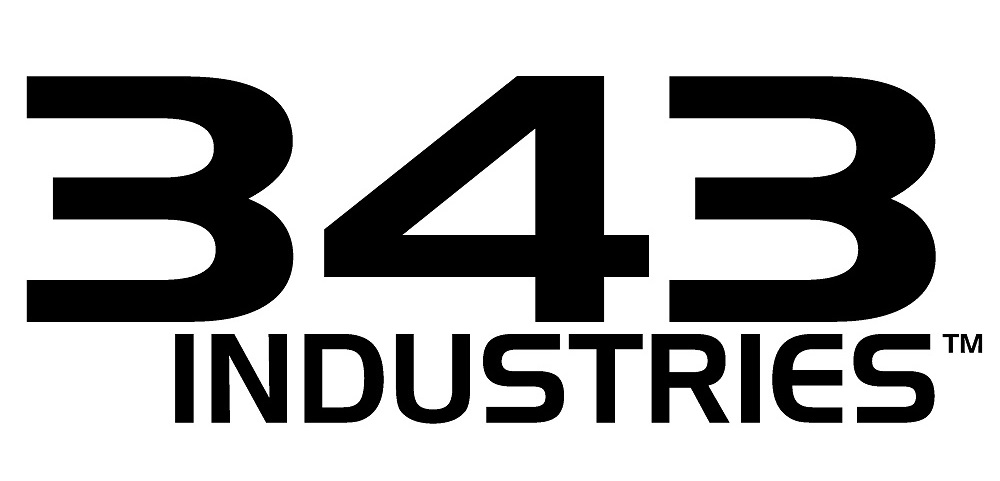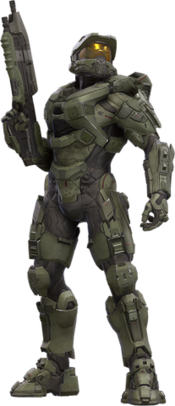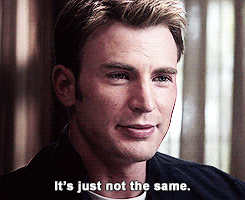Trending
Opinion: How will Project 2025 impact game developers?
The Heritage Foundation's manifesto for the possible next administration could do great harm to many, including large portions of the game development community.

Featured Blog | This community-written post highlights the best of what the game industry has to offer. Read more like it on the Game Developer Blogs or learn how to Submit Your Own Blog Post
A look back at my time working for 343 Industries and some related growing pains.

This post was originally published on @Ryan_Darcey's blog, Making Moves.

DISCLAIMER: Nothing in this post reflects what 343 Industries thinks or what the future holds for Halo. This is all from my own dumb brain and I have no idea what 343 Industries is currently up to. Lastly, I have the utmost respect for everyone that works there and I'm excited to see what they release next!
I blogged a while ago about working at Terminal Reality and LucasArts, but have held off on writing about my experience at 343 Industries (343i) until I've had some more time away from the studio. I just hit my 2 year indie anniversary and it feels like there's enough space between working on Halo and the present moment in order to judge it fairly. My three years at 343i was a period of growth, but by way of some difficult lessons learned. I now know a lot more about what I need to satisfy the game dev inside of me and how important it is to find a studio that's a culture fit (with no one culture being inherently better or worse).
Let's start with something easier first, though.

At least that's what I think Seattle wants you to believe in order to keep its growth under control. It's absolutely beautiful here, the summers pay off in dividends and the video game industry is very much alive and well. I most recently moved from San Francisco where the development scene has been hit hard w/ closures and layoffs over the past few years. As much as I love the Bay Area, I think it'd be hard to move back and find what I'm currently looking for in my life or career...let alone find an apartment.
That said, Seattle is having its own growing pains and there's much to lament with regard to diversity (or lack there of), but from a video game development stand point I feel like I'm at the epicenter of where all the interesting things are happening. Especially being a part of the indie scene. So many AAA devs have left big studios in the area and are starting up exciting projects. It's encouraging and it makes the dream seem possible, though I know we're not all going to make it.
Anyway...that's my quick love letter to Seattle. 343i brought me up here and that alone made a kind of scary move worth it.
But seriously. Don't move here. It's terrible.
EDIT: A day after posting this blog, I received notice that my beautiful, 94 year old apartment building is set to be demolished in order to make room for microhousing units. If you're in the Seattle area and want to protect our culture and quality of life, please sign this petition. More destruction is on its way if we can't protect historic landmarks like the Roy Vue.

Halo is one of my all time favorite franchises and the impact it's had on my career is difficult to quantify. The controls, the joust, the 30 seconds of fun, the sandbox, the precision tuning, the console multiplayer...the CHIEF! As a gamer, these things all had a huge impact on my appetite for play. As a developer, they set a high bar for what I might achieve one day. For those reasons, I came into 343i with a lot of excitement, but along with that was a healthy dose of trepidation.
When Halo 3 came out, I remember sitting in the matchmaking lobby chatting w/ some other game dev friends and saying "I don't ever want to work on a Halo game." At the time, I thought, "How the hell am I going to make this better?" Also, I felt like it was going to be difficult for a franchise that established to evolve in significant ways...cause then it probably wouldn't be Halo anymore. Turns out, I think this is a real problem for any massively successful franchise over time. Striking that balance between innovation and staying true to your roots is crazy difficult.
As a developer trying to tackle this problem, you also have to be ready for The Internet. Here's a sample of some comments from my 2016 GDC talk about designing Spartan Abilities for Halo 5: Guardians.
"Here it is, the man who killed the golden gameplay of halo."
"RIP Halo."
"343 ruined halo."
This one (among others) actually got removed after I made a joke on Twitter about it. The screenshot still lives on in my account. It's only the tip of this persons rant iceberg.

I don't need to drone on about how toxic the gaming culture can be. We all understand how The Internet has both elevated and devolved society. The examples are endless and reach far beyond our little gaming corner...but, the resentful, hateful view that fans impose on the regular people making their favorite games is pretty bonkers. My totally unscientific explanation is that the competitive aspect of most games brings out this weird desire to not just win the game, but also win the meta game w/ the developer by being smarter than them. Or something like that. I don't know. Humans can be dark creatures and other areas of entertainment suffer similar slings and arrows.
Personally, I really enjoy what Spartan Abilities have added to the mix (surprise!), but can't say for sure that this contribution to Halo was for the best. Either way, I think it's clear that established franchises face a very, very difficult problem around choosing where to innovate. I discuss some ways we approached it for Halo 5: Guardians in my GDC talk, but I'm not going speculate as to what the next best move would be for 343i. I would love to see some bigger changes, but many other people wouldn't. I just want a God of War style 3rd person Spartan brawler spin off. It's nice to want things :)
But to take a few steps back for a second...if I thought Halo's success presented big enough problems for me to say that I never wanted to work on it at one point, what changed my mind?
Tim Longo and Chris King. That's why I moved up to Seattle to work on Halo. Tim was our Creative Director on Star Wars: First Assault (SW: FA) and he's one of my favorite people in the industry. When he took the Creative Director position up at 343i, that totally changed how I thought about working on the franchise. Then, to seal the deal, when I interviewed w/ Chris King I knew I would learn a lot working with him (SPOILER: I was right about that). He reminded me a lot of Ed Kay, my previous design manager on SW: FA and still mentor. They both have this insane ability to see the space between frames and determine exactly where problems lie, among other very desirable game designer attributes. They all rolled 20s across the board.

So, I ultimately walked through the door at 343i w/ a lot of optimism for the future. A big part of that optimism was, "OMG I can't wait to implement all the amazing processes we had on SW: FA. Should be SO easy with Tim near the top!" That. Was. Not. True. 343 Industries is not a 50 person team. I came in pushing pretty hard for changes to how we planned our work, ran morning stand ups, processed playtest feedback, etc. Hindsight being 20/20, I pretty much set myself up to fail as soon as I opened my mouth by not recognizing how different this environment was. I was coming off a career high working with the SW: FA team and was crazy overzealous about trying to help foster the same culture at 343i. I was trying to square peg a round hole (without placing any judgement on which is the better shape).
The reality is, turns out I don't really like working for large teams much at this point in my career. In addition to all the inherent problems to solve around efficiency, it's difficult for someone like me who enjoys to design, code and influence production processes to really scratch all those itches. Large teams tend to be a lot more specialized. That's just the way it goes. I was pretty brash about fighting to get code access so I could prototype my designs at 343i. It really cost me in the end, as I failed to recognize the precarious position I was putting myself and others in. Eventually, I was granted code access, but then it was taken away. The reasons for all that are complicated and I'm sure I don't fully understand them myself. Either way, the result made me pretty bummed because generally speaking we're most happy when we're realizing our full potential. It's arguable whether or not I was actually capable of giving more to Halo, but I was left wanting to.
Ultimately, the team size, the focus on specialization and the challenges around navigating Halo's legacy left me w/ an extremely strong desire to make a stupidly ambitious (still unannounced) game on my own. So, that's what I set out to do in the Spring of 2016. Also, for the record, I'm totally happy to admit those difficulties that I faced at 343i may be the result of my own shortcomings as a developer.
Prior to shipping Halo 5: Guardians, I don't think I had all the skills required to execute on a level that matched my indie ambitions. I mean, maybe I still don't, but I'm definitely much closer having had that experience. Specifically, the degree to which I was exposed to folks w/ great design sensibilities has had a big impact on me. I don't think I'm a natural designer, but I'm a good learner! Which means I need to surround myself by more talented people in order to grow. No shortage of them around 343i. They are stacked w/ amazing developers across the board. Many "best in their field" types of folks. That's one huge advantage to working on a team like that.
So, that's part 3 of my game dev story. I remain hopeful that the 4th installment will inject some new highs into my career, but expectations are sufficiently in check -_- The indie scene is bonkers these days, but I'm dumb enough to think I still might have a chance ¯\_(ツ)_/¯

Read more about:
Featured BlogsYou May Also Like